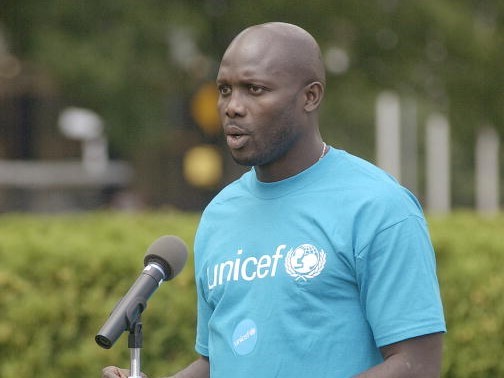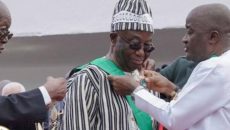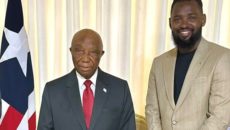Although presidential elections in the United States will take place nearly a year before those in Liberia, one would not know by the political jostling and cabinet resignations presently shaking up Monrovia.
The Liberian political scene seems to be firmly following the American establishment in christening a lengthy lame duck period as two historically significant presidents leave office – the first non-white head of state in US history and the first elected female chief executive in Liberia.
Leading the way as possible successors to Obama and Sirleaf are Hillary Clinton in the United States and George Weah in Liberia. The average voter in each nation would be hard pressed to discern any similarities between the two. After all, it is President Sirleaf and Secretary Clinton who share the same gender, are graduates of Ivy League schools, and have attended fundraisers together.
However, Weah and Clinton do share several similarities, most fundamentally their overwhelming political ambition. Clinton is older than Weah, has been politically engaged longer, and has also been comparatively more successful than Weah. Therefore, Clinton’s success (or lack of) should be watched closely by George Weah and his CDCians as they pursue the presidency.
The political careers of both Weah and Clinton are simultaneously enabled and hindered by their compelling biographies. Much of Clinton’s current appeal to the American electorate is a belief that after the first black president, it is time for the country’s first female one.
Similarly, Weah can counter that his international recognition derived from a successful football career positions him to match the global recognition of the woman he wants to follow, a Nobel Peace Prize laureate.
Within these arguments lies the Achilles Heel of each candidate as well. Clinton is often perceived as riding the coattails of her charismatic and philandering husband, the 42nd President of the United States. George Weah is perceived as relying on his athletic stardom, and the youth appeal it elicits, to secure office.
Each has failed in a previous attempt to secure their country’s highest office. Weah blew a significant edge following the first round of elections in 2005 while Clinton lost her frontrunner status during the 2008 primary when she was outmaneuvered by Obama.
Both embarked on their political careers with significant name recognition in place and each aimed high. Clinton managed her entry into electoral politics with more success than Weah, however. Whereas Clinton launched her political career by running for Senate, Weah only went that route after his party was denied the presidency on two successive attempts. As a result, Clinton could point to having served a full term in the Senate when she ran for President in 2008. Weah eventually decided to emulate Clinton’s example and did successfully contest a Senate seat in 2014.
However, he has now confirmed his candidacy for the presidency in 2017 and can point to just over one year of experience on the job. If he had contested for the Senate in 2005, he could have been in a much stronger position today.
Both Weah and Clinton also served in the administration of their electoral competitors. Although Clinton has attracted much criticism from her actions while Secretary of State, her service on the whole has allowed her to point to strong foreign policy experience. Meanwhile, Weah gained little political capital from his nearly two years of work as Liberia’s Peace Ambassador and his pursuit of a business degree appeared not to be geared toward enriching his intellect but to silence his detractors who said Liberia needed a college educated leader.
In the early rounds of the current election cycle in the US, Clinton has stumbled again. Although it appears that she will now receive the nomination, a struggle to prevail over an avowed socialist was unexpected.
Weah will undoubtedly face a number of challengers, a number of them much better positioned than Sanders. Benoni Urey can draw on a massive personal fortune with which to campaign. Joseph Boakai enjoys the advantages of incumbency. Charles Brumskine is a seasoned politician who oversaw a strong showing by the Liberty Party in 2014.
If Hillary Clinton has struggled to gain traction in the US, it is likely that George Weah will face similar obstacles with Liberian voters. Weah has shown before that he is open to alliances that will advance his political career. Although teaming up with Winston Tubman in 2011 was not effective, taking lessons from the successes and failures of Hillary Clinton might bear better results.



